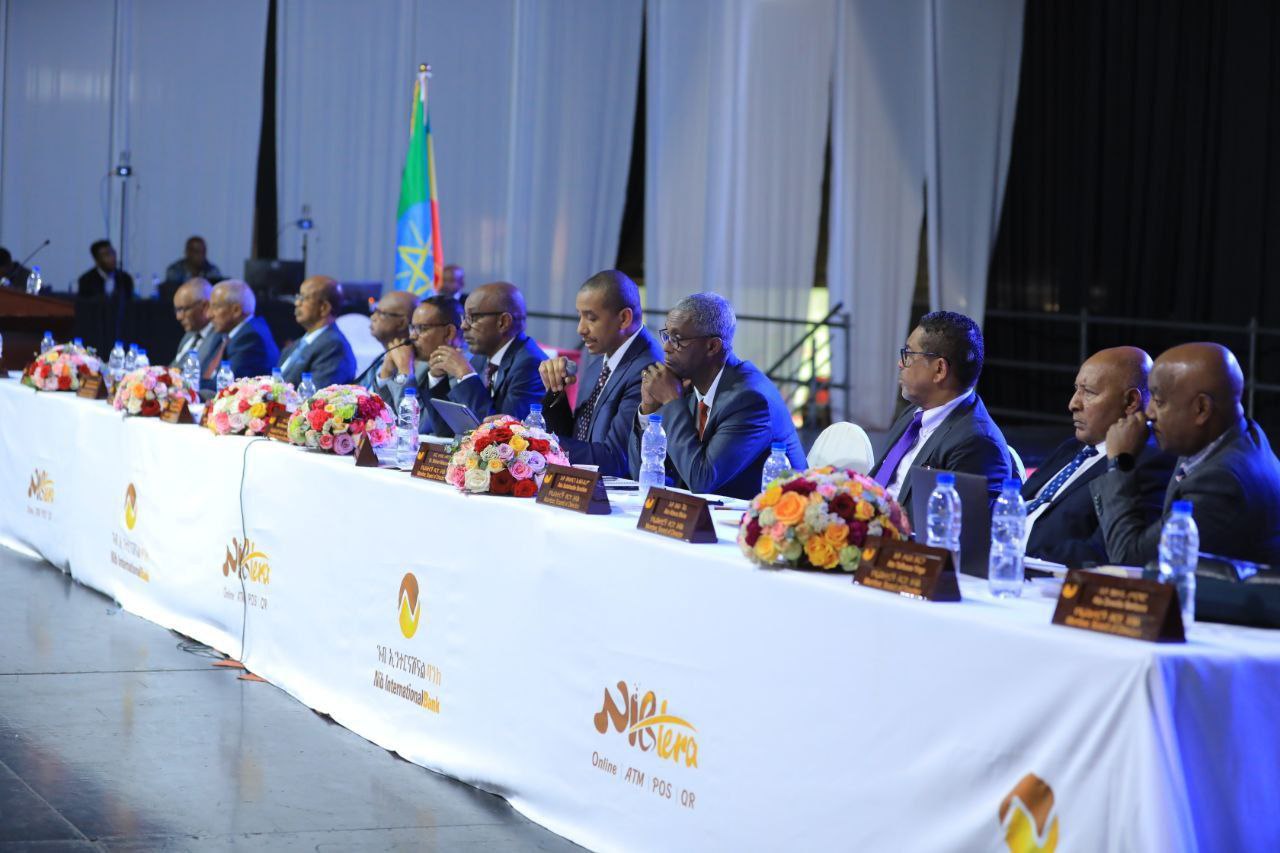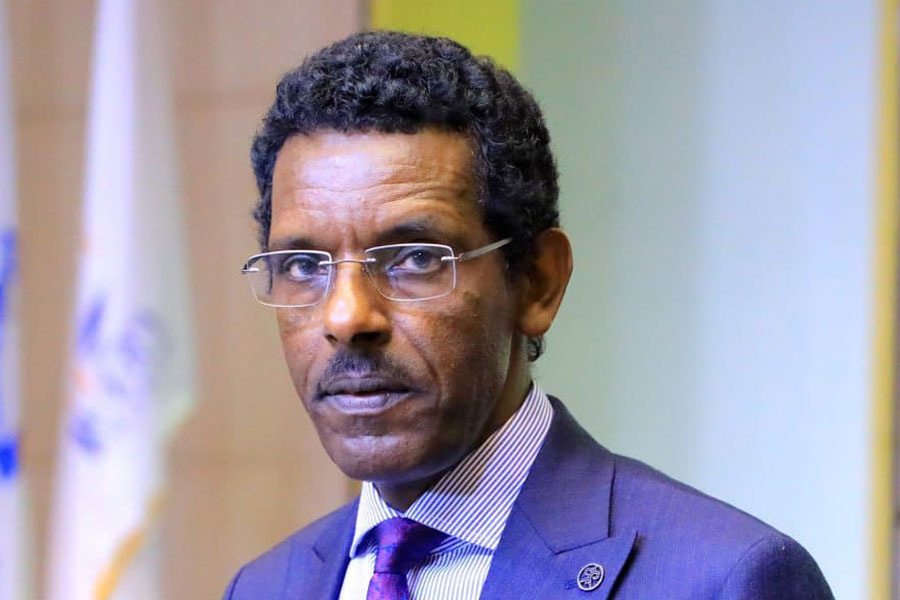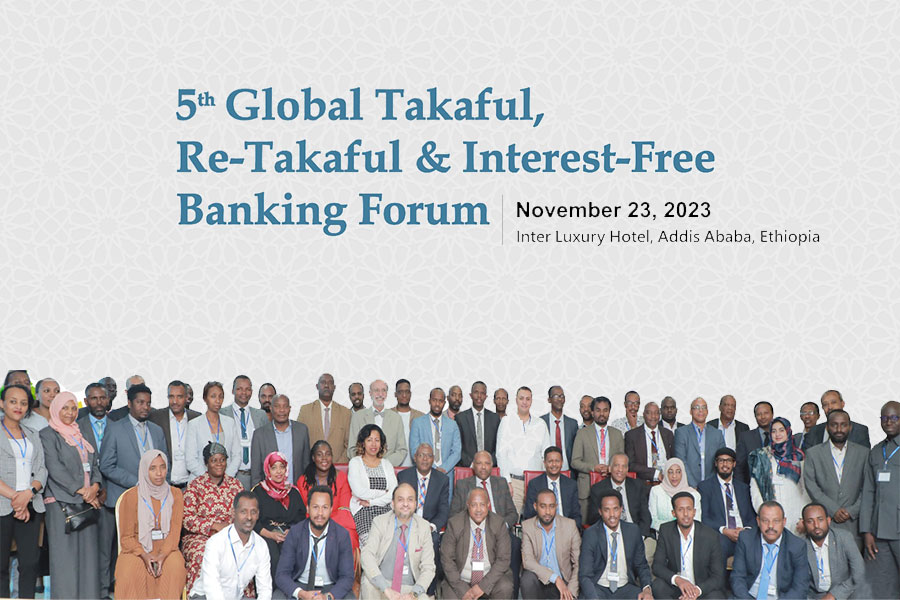
Radar | Oct 26,2025
In a media space overwhelmed by polished interviews and scripted stories, Dejaf, a YouTube podcast created by Dawit Tesfaye, presents an engaging and refreshing alternative to its listeners. The show disrupts traditional media formalities, delivering frank and unfiltered dialogue that resonates deeply with its audience.
Dawit’s vision to provide a space where people can speak freely may appear deceptively simple, yet it is part of an emerging podcasting sensation at the forefront of shaping public discourse. It heralds the dawn of an era when unlikely voices are contesting entrenched societal power structures. The rise of independent podcasts in Ethiopia represents a cultural shift, offering an unfiltered platform for diverse voices to discuss wide range of subjects, from business and personal growth to entertainment and politics.
Podcasts have evolved from forms of entertainment. They challenge the traditional media, reflect societal transformation, and offer an alternative to state-controlled narratives. They often touch on themes that have been considered taboo in mainstream discourse.
For Dawit, mainstream media has long dictated the narrative, serving specific agendas while failing to capture the "unrepresented voices of the people."
"It failed us," he said.
His podcast is a form of rebellion, a call to step outside, leave the house, and engage in candid and open dialogue. The cultural symbolism of "Dejaf" runs deep. Dawit picked the brand "Dejaf" to represent an outdoor space, evoking the idea of stepping outside the home, away from restrictions and into open air, where conversations flow without barriers. As homes have front yards, a place where conversations happen, the podcast offers an outlet for raw and unstructured discussions.
Unlike traditional media interviews, which often feel rigid and rehearsed, podcasts like Dejaf allow for spontaneous conversations, seeking authenticity that captivates listeners and keeps them returning.
Dawit's background in media and filmmaking gives him an edge, allowing him to leverage an established network of contacts. Before inviting guests onto his show, Dawit thoroughly researches them. Even if they decline to appear, he, nonetheless, views the process as reading a biography, never as time wasted. He would not go on recording before meeting his guests informally, easing them into the process.
By introducing them to the "podcaster Dawit" and going over potential topics, he ensures the preparation enables a comfortable and free-flowing atmosphere on the show.
"This way, they aren’t caught off guard," he told Fortune.
The show's informality is reflected in the details, including the refreshments offered. Tela, a traditional fermented local beverage, is Dawit’s favourite drink, complementing the show's laid-back conversation setting. The editing begins once an episode is recorded, which Dawit finds enjoyable and demanding. The effort is evident. Dejaf has garnered over 100,000 subscribers and nearly six million views across 50 episodes in two years.
Dejaf is one of the increasingly popular podcasts in the league of Meri, We'chew GOOD, and Gugut, amassing hundreds of thousands of views within days of being uploaded. Its conversational style encourages in-depth discussions typically absent from traditional media outlets. In a society where public figures have historically been guarded in their speech, sensitive topics like mental health, gender roles, and political critique are now being openly explored, sparking widespread public conversations.
Locally, podcasts have found their own space, with Gugut as one of the movement's pioneers. Launched by three friends passionate about discussing diverse topics from their living room, Gugut has gained over 40,000 subscribers despite using few equipment. With 240 videos and over 4.7 million views, the podcast showed how the format has transcended traditional barriers.
Co-founder Dagim Mekonnen notes that video podcasts attract more attention than audio-only formats due to their visual engagement.
"Despite the appeal of visual content, the core strength of podcasts lies in their unscripted, authentic dialogue," he said. "Podcasts have tapped into an audience that craves genuineness, preferring free-form conversation to scripted, formal interviews."
YouTube, in particular, has played an influential role in the podcasting boom. With increasing internet access and a growing appetite for unfiltered dialogue, podcasts attract diverse audiences seeking candid conversations. Unlike the mainstream media, which is often subject to editorial oversight and guidelines, podcasts offer creators the "freedom" to explore controversial topics with less pervasive interference. The autonomy has fueled the rapid growth of the local podcasting scene.
The rise of podcasts reflects a broader trend among content creators who seek independence and greater control over their revenue streams. Unlike traditional television and radio, where sponsorships and advertising revenue are often shared with media houses, podcasters retain a larger share of their earnings.
Monetisation strategies for Ethiopian podcasts are still evolving. Most creators count on YouTube’s advertising revenue, but others are exploring additional income sources, such as sponsorships, crowdsourcing, and direct support from their respective listeners. Gugut, for instance, has received sponsorship payments from 5,000 Br to 25,000 Br for an episode, alongside YouTube earnings of up to 40,000 Br a month.
The revenues stream is evident in the growing viability of podcasting as a sustainable mainstay, particularly as internet access expands and more creators enter the space.
Nevertheless, financial gains may serve as a powerful motivator for many creators. The impact of these podcasts extends far beyond monetary gains, as they actively shape societal norms and break down cultural barriers.
We'chew GOOD, a more laid-back podcast with over 135,000 subscribers and more than one million views, was launched by Abel Misrak. He initially designed the show to have five people on a single episode, believing that diverse viewpoints were essential for a robust exchange of ideas. The team he assembled included Bereket Tadesse, Yonatan Fasil, and later, Mahider Kebede, whose presence brought a much-needed female perspective to the show.
"For different perspectives to collide, it needed to be more than one person," he said. "I intended to promote 'deep and meaningful conversations' that I felt were missing from public discourse."
Abel and his team intentionally keep the format loose, allowing conversations to follow their natural course. Light editing reinforces the podcast’s raw and genuine feel. Even unexpected interruptions, such as power outages or an uninvited mouse in the studio, often make it into the final cut, hoping to add to the show’s authenticity.
However, We'chew GOOD has not been without controversy. Early on, politically incorrect statements made by some guests stirred backlash, prompting calls for retractions. Yet, the podcasters stood their ground, arguing that these conversations, however uncomfortable, reflect the complexities of Ethiopia's society.
The growing demand for accessible business resources led to the creation of the MERI podcast. Co-founder Kenean Asefa, deputy CEO at his family-owned business, Daye Bensa Coffee, one of the largest coffee exporters, had frequent meetings with business leaders. Through these interactions, he realised how valuable it would have been to hear these leaders' stories and insights earlier in his career.
Alongside his co-host, Tigabu Haile, CEO and co-founder of logistics company Eshi Express, they launched MERI to fill a gap in the market for business-focused content.
Meri, literally translated as a leader, has since reached over 105,000 subscribers and nine million views, with a loyal following primarily of viewers aged 35 and older. It allows business leaders to take centre stage while the hosts facilitate discussions. In its weekly format, it has released more than 100 episodes in two years. It presents a guest-driven approach on business-related issues, avoiding political commentary even when conversations touch on policy and regulations.
The Meri team comprises four part-time members, including the co-hosts, and three full-time employees responsible for research, editing, and communication.
Kenean and Tigabu describe themselves as curious learners who use the platform to absorb knowledge from their guests. They are selective about who appears on the show, relying on specific criteria and consulting acquaintances before extending invitations. Although both hosts manage full-time businesses, they want to maintain high standards on the podcast, meeting guests on the day of recording and briefly outlining the conversation beforehand. Editing is carefully handled to avoid unnecessary repetition while ensuring guests are comfortable with the final product.
"Podcasts in every sector are crucial for making information accessible," said Tigabu, noting that he lives in a country where the majority of the population is young. "And nothing could match authenticity."
He urged aspiring podcasters to pursue content they enjoy producing, as this could resonate with their audience. While multiple companies have approached Meri for advertising, Kenean and Tigabu say they are selective about partnerships, choosing only industries that conform with their values.
For content creators like Dejaf, We'chew GOOD, and Meri, the task will be to keep innovating, experiment with new formats, and stay true to the "authenticity" that has made podcasting such a powerful medium. Podcasting offers a platform for voices that might otherwise go unheard.
The influence of podcasts on global media is not a new phenomenon. Over the past two decades, they have emerged as a powerful tool for storytelling and discussions globally. The format’s origins date back to 2003 when journalist Christopher Lydon launched "Open Source", widely regarded as the first podcast.
Media experts suggest that as podcasts continue gaining traction, they may complement the mainstream media and redefine it entirely. Whether through experimental storytelling or giving a voice to those silenced, podcasts are paving the way for a media space that is more inclusive, representative, and reflective of diverse experiences. According to the political theorist Jurgen Habermas, the "public sphere", where citizens debate issues of public concern, is indispensable.
Like in many societies worldwide, the rise of podcasts signals a new era for Ethiopia's media industry, which embraces greater freedom of expression and challenges the hegemonic hold of traditional outlets. Critical theorists like Antonio Gramsci have argued that dominant groups maintain power by controlling the flow of information. Podcasts are beginning to shift this balance, providing a platform for previously marginalised voices.
PUBLISHED ON
Sep 08,2024 [ VOL
25 , NO
1271]

Radar | Oct 26,2025

In-Picture | Sep 29,2024

Viewpoints | May 11,2023

Radar | Apr 21,2024

Viewpoints | Sep 03,2022

Fortune News | Aug 11,2024

Viewpoints | Mar 16,2024

Fortune News | Nov 25,2023

Commentaries | Oct 03,2024

Radar | Aug 13,2022

Dec 22 , 2024 . By TIZITA SHEWAFERAW
Charged with transforming colossal state-owned enterprises into modern and competitiv...

Aug 18 , 2024 . By AKSAH ITALO
Although predictable Yonas Zerihun's job in the ride-hailing service is not immune to...

Jul 28 , 2024 . By TIZITA SHEWAFERAW
Unhabitual, perhaps too many, Samuel Gebreyohannes, 38, used to occasionally enjoy a couple of beers at breakfast. However, he recently swit...

Jul 13 , 2024 . By AKSAH ITALO
Investors who rely on tractors, trucks, and field vehicles for commuting, transporting commodities, and f...

Oct 25 , 2025
The regulatory machinery is on overdrive. In only two years, no fewer than 35 new pro...

Oct 18 , 2025
The political establishment, notably the ruling party and its top brass, has become p...

Oct 11 , 2025
Ladislas Farago, a roving Associated Press (AP) correspondent, arrived in Ethiopia in...

Oct 4 , 2025
Eyob Tekalegn (PhD) had been in the Governor's chair for only weeks when, on Septembe...